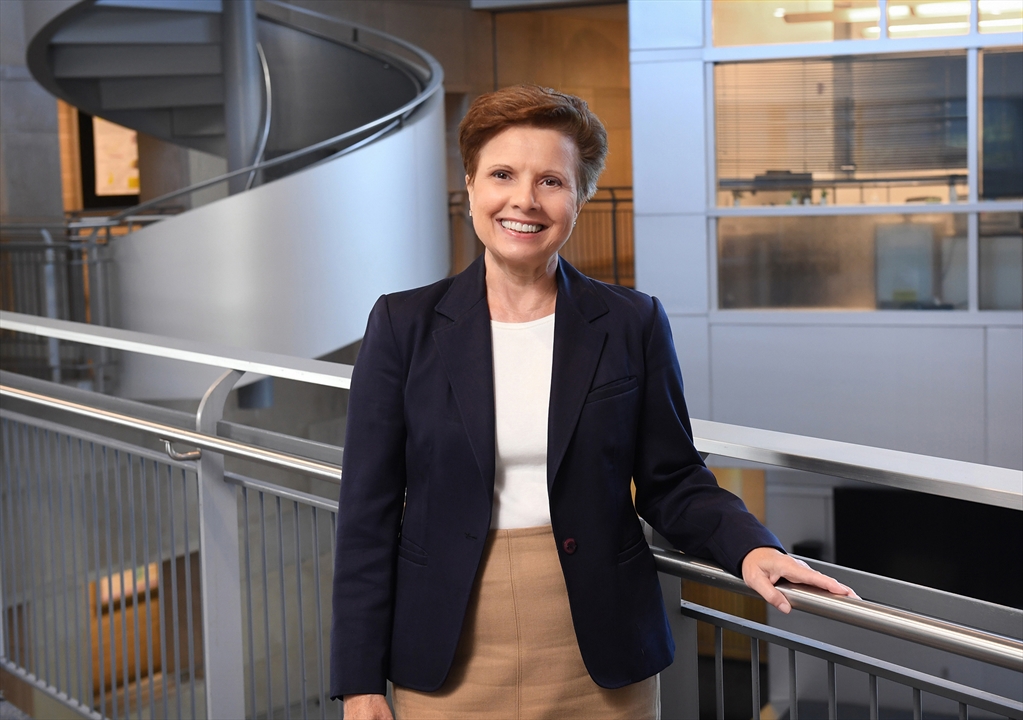Meet a Member: Zenaida Otero Gephardt
Published October 30, 2022

In the mid-1970s, a time in which few women enrolled into engineering courses at Northwestern and other top US universities, Zenaida Otero Gephardt ’77 found the support she needed to thrive.
Gephardt recalls Joshua Dranoff, a longtime professor and then chair of Northwestern’s chemical engineering department, helping her realize her potential talents and encouraging her to pursue graduate school. Dranoff’s words provided an important jolt of confidence for a young female student eager to make inroads into the male-dominated field of chemical engineering.
“He saw in me things I don’t think I saw in myself,” Gephardt says.
Gephardt and her family came to the US as Cuban refugees when she was 9 and settled in Miami. It was her move to Evanston that transformed the trajectory of her life.
In chemical engineering courses, Gephardt gained the technical foundation to succeed in the field. Through involvement with Women at Northwestern, a women’s rights organization, and Omega Chi Epsilon, the Chemical Engineering Honor Society, Gephardt interacted with students from diverse backgrounds and expanded her worldview. And with exposure to the arts and humanities in an eclectic college town rich in diversity and energy, she matured as a global citizen.
“Just about everything positive I am today is due to my experience at Northwestern,” says Gephardt, who attended Northwestern with the support of a robust financial aid package that included work-study positions in the chemistry and computer science departments.
Gephardt credits Northwestern for teaching her to take risks in learning and in life—a lesson she has since put into practice.
After graduating from Northwestern in 1977, Gephardt continued to deliver on the potential Dranoff had spotted. She earned master’s and PhD degrees in chemical engineering from the University of Delaware and worked in the Engineering Technology Laboratory at DuPont.
After becoming a mother in 1986 and seeking more flexibility in her life, Gephardt launched a consulting operation and accepted an adjunct faculty position teaching physics and math at Glassboro State College in Glassboro, New Jersey. When industrialist Henry Rowan and his wife, Betty, donated $100 million to Glassboro State in July 1992, the donation came with one request: that an engineering school be created. College leadership tapped Gephardt to coordinate the development of the school from scratch. Gephardt chaired the committees that hired the dean and department chairs, wrote curricula, and shepherded the initial design of the academic engineering building. The building was designed to complement the curricula, a first for an engineering college.
Following the record-breaking gift, the college’s name was changed to Rowan University, and Gephardt saw firsthand how the Rowans’ philanthropy improved lives. It provided young people from southern New Jersey, many of them first-generation college students, access to a high-quality engineering education, and Gephardt bore witness as many of her own students develop successful careers in industry and academia.
“You make contributions that are significant not because of what you do necessarily, but because of what everybody whose life you touch does from the moment they leave,” says Gephardt, whose 35-year run as an award-winning faculty member, researcher, and administrator at Rowan University continues today.
Understanding the power of a dynamic and supportive college experience, Gephardt has been a generous supporter of Northwestern. She specifically makes unrestricted gifts to the University, so leadership has the flexibility to address the most pressing needs.
“I owe a great debt to Northwestern and the many people who gave money because they understood the importance of education—without knowing who I was, or where I came from, or what I would do with it,” Gephardt says. “I think that those of us that have benefited so much from the philanthropy of others have a special obligation to do what we can.”
